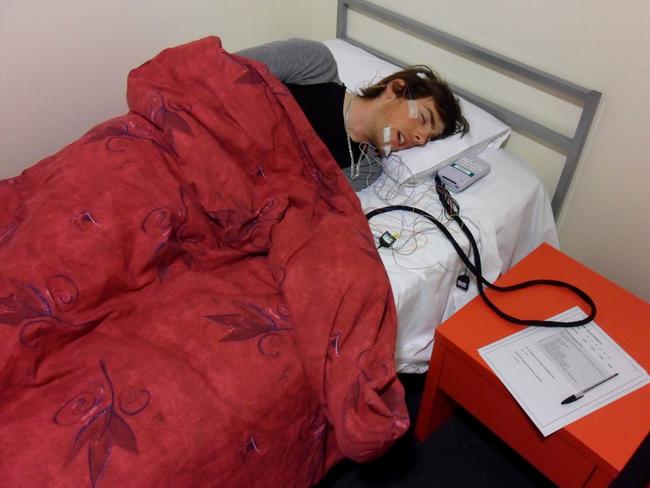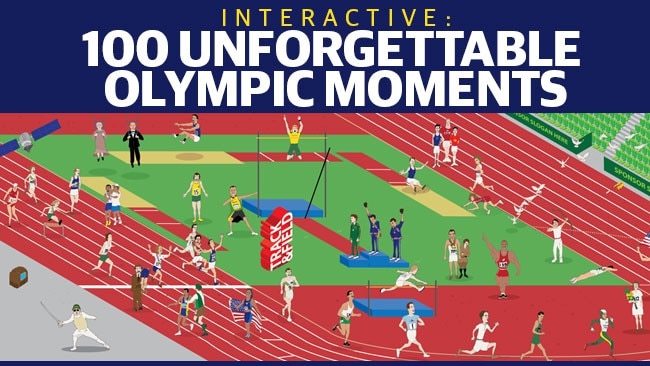Australia‘s Olympic swimmers can sleep easy at Rio despite late night meets thanks to recovery training
IN preparation for Rio Australia’s top swimmers have been working to nail their starts, kicks and turns. Now they need to work as hard to finetune their sleeping.

OVER the past four years Australia’s top swimmers have been working hard to finetune their starts, kicks and turns in preparation for Rio. Over the next few weeks they will be working just as hard to finetune their sleeping.
For the first time, swimming events at the Rio Olympics will be held between 10pm and midnight local time in order to fit in with peak TV viewing in the US.
Add in time spent for medal presentations, media commitments and drug testing and a champion swimmer could be getting back to the athletes’ village in the early hours of the morning, and then have to line up for heat swims at 1pm the same day.
For the swimmers and their coaches it is a potential problem. For Dr Shona Halson, Queensland-based senior recovery physiologist at the Australian Institute of Sport, it is a challenge.
Few elite athletes are as obsessed with sleep as much as swimmers. They must be up around 4am for training and need to be, not just in bed, but asleep early to achieve the necessary amount of quality rest and recovery.
And that is not once or twice a week. It is every day, year in year out.
As Dr Halson put it: “A lot of them are walking around in a constant state of tiredness most of the time. It is only when they are tapering that they feel half good.”
Little wonder then that Ian Thorpe once told a reporter that one of the best moments of his competitive career was when he calculated that setting his alarm clock two minutes later each morning would give him an extra eight hours sleep a year.

Changing the sleep habits of our best swimmers in preparation for Rio began in earnest with a five-night camp at the AIS in Canberra last year during which Dr Halson and her team monitored the athletes’ rest habits and began the process of acclimatising them to the “upside down” world of competing in Rio.
This involved putting them through time trials in a mock late night competition schedule and recording the sleep patterns of the swimmers during the unusual conditions.
“There is nothing different to what they are used to in terms of time frames,” Dr Halson said. “They will still have the same time between their competition sessions so they will still have the same amount of sleep.
“The difference will be in the time of that sleep and the environment. They will be trying to sleep in a village environment, at the most exciting event they will ever compete at, and that is something that cannot be replicated in training.
“What we have to do is make sure that their sleep routine is as consistent and productive as possible.”
During the camp the amount and quality of the swimmers’ sleep was recorded and analysed and they were lectured about the best ways to deal with the sleeping issues that Rio could present.
“Overall I was pretty impressed,” Dr Halson said. “This is a clever group and they took everything on board. They are super-fit athletes, they adapt quickly.”
There were a few whose sleep routine needed “tweaking” and all members of the team were given “sleepwatches” to take away and wear when sleeping. Equipped with an accelerometer, the watches measure movement.
“Basically the stiller you are when you are asleep the better quality of the sleep,” Dr Halson said.
The information recorded by the watches, along with sleep diaries the team members filled out throughout their pre-Games training will be used as part of the overall Australian team recovery program being run by the AIS in Rio.
“We have an amazing recovery centre in Canberra and we are going to replicate that as closely as we can in Rio,” Dr Halson said — but admitted that as good as the equipment the AIS is shipping to Rio might be, nothing compares with nature.
“These athletes undergo high training loads,” she said. “The body needs to recover — and sleep is the best recovery strategy there is.”
Originally published as Australia‘s Olympic swimmers can sleep easy at Rio despite late night meets thanks to recovery training




